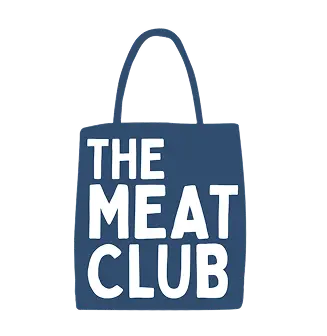When it comes to high protein and healthy meat, salmon is actually one of the most popular options. This fish is packed with not just protein, but also other essential nutrients such as omega-3 fatty acids. However, some may be confused about the differences between wild-caught vs farm-raised salmon. If you wish to further understand which salmon is better for you, below we explain the key differences.
Source: https://www.pexels.com/photo/person-slicing-meat-on-white-chopping-board-1409050/
What is Wild-Caught Salmon?
Wild-caught salmon is caught in natural environments such as rivers or the Atlantic ocean. They are not fed additives or specific food in order to grow. Instead, they follow a natural diet, roam freely in the waters, and consist of leaner flesh.
What is Farm-Raised Salmon?
Farm-raised salmon salmon are grown in tanks or ocean pens. They are typically bred for humans to eat. Unlike wild-caught salmon, they are fed specific food in order to grow quickly and offer better quality taste or texture. Besides their diet, the environment and health for salmon raised are controlled closely for nutritional benefits.
Differences in Wild Caught Salmon and Farmed Salmon
1. Nutritional Differences
Although both are salmon, they are grown in different environments and fed individual diets. Thus, there may be a slight difference in the nutritional content. Some of the nutritional differences between wild salmon vs farm salmon are:
Wild-Caught Salmon Nutrition
- Lower in calories as it has leaner flesh
- Lower fat content
- High omega-3 and omega-6 content
- Higher amount of protein
Farm-Raised Salmon Nutrition
- Higher in calories as it consists of higher fat content
- May have a low amount of omega-3
-
Lower protein content
2. Taste and Texture Comparison
Due to how each of them has different living conditions and environments, the taste and texture have some slight differences as well, such as:
Wild-Caught Salmon
Wild-caught salmon has a more ‘salmon’ taste since it lived in the ocean or a river. They are not fed specific food, so they tend to taste more ‘natural’ and have a strong flavour. The texture is firmer as well since they live an active lifestyle, swimming freely across the waters. As for the colour, it has an orange or red flesh colour.
Ocean-Farmed Salmon
Ocean-farmed salmon has a more buttery, soft, and fatter texture with a mild salmon taste. Since it's fed with specific food and given pesticides due to the farming environment, the colour is slightly more pink.
3. Environmental and Ethical Considerations
As for the environment and ethical practices between wild-caught vs farm-raised salmon, both can be considered as sustainable. However, there are significant differences to take note of, such as:
Wild-Caught Salmon
Most of the time, wild-caught salmon are sustainable, but it also depends on the location. For instance, overfishing can be an issue and cause a decrease in the population of ocean wildlife. When fish are overharvested, it can disrupt the marine ecosystem and affect the overall food chain.
Farm-Raised Salmon
Farm-raised salmon are known to prevent the excessive harvesting of fish, resulting in a more sustainable option. However, it can cause several environmental impacts, such as pollution. They are usually fed with antibiotics, pesticides and other food to grow quicker, so they also contain higher amounts of contaminants. Thus, it may lead to other fish getting diseases if they consume salmon.
Which Salmon Should You Choose?
If you’re trying to decide between wild-caught salmon vs farm-raised salmon, it all depends on your own preferences and environmental values.
Wild-Caught Salmon
You should go for wild-caught salmon if you prioritize a rich, strong salmon flavour. It’s also a better choice if you have specific fitness or health goals where you’re looking for salmon that’s lower in calories. Wild-caught salmon also has a healthier, more natural diet, which follows sustainable or ethical fishing practices.
Farmed Salmon
Farm-raised salmon is typically a better choice if you don’t have specific environmental concerns. Those who prefer a mild salmon taste would also enjoy it. Most of the time, freshwater salmon is slightly cheaper than wild-caught salmon as well, making it suitable for those who are on a tight budget.
Conclusion
Understanding the key differences between wild-caught vs fresh water salmon is crucial so that you can make better choices when it comes to your health and lifestyle. Both wild-caught and farm-raised salmon have their own pros and cons, so it really just depends on your personal preferences and needs.
Shop New Zealand King Salmon in Singapore with The Meat Club
If you’re hunting for the best quality salmon in Singapore, buy salmon online with The Meat Club! We source only the freshest New Zealand King Salmon from Akaroa Harbour, New Zealand and deliver it right to your door!

